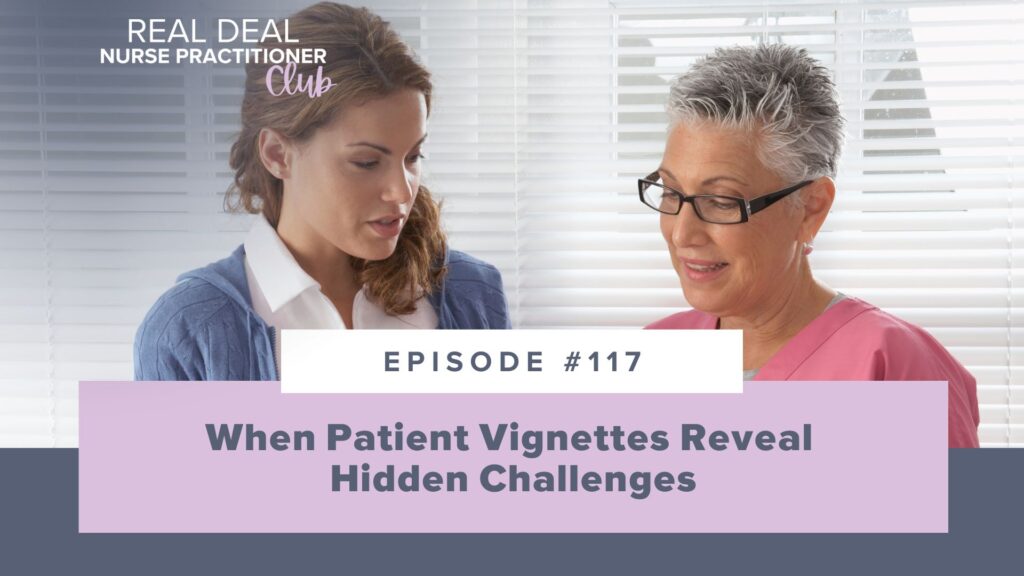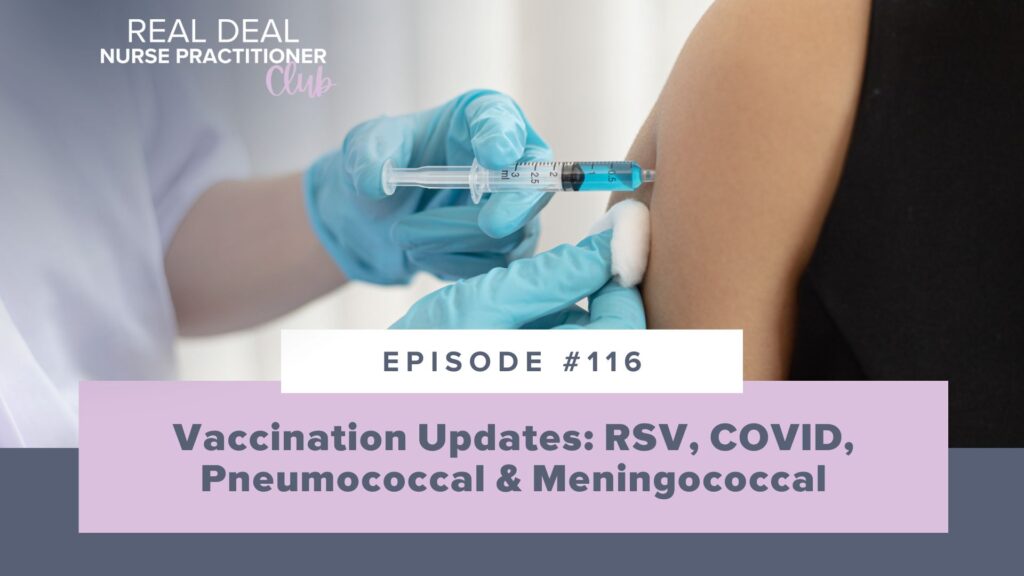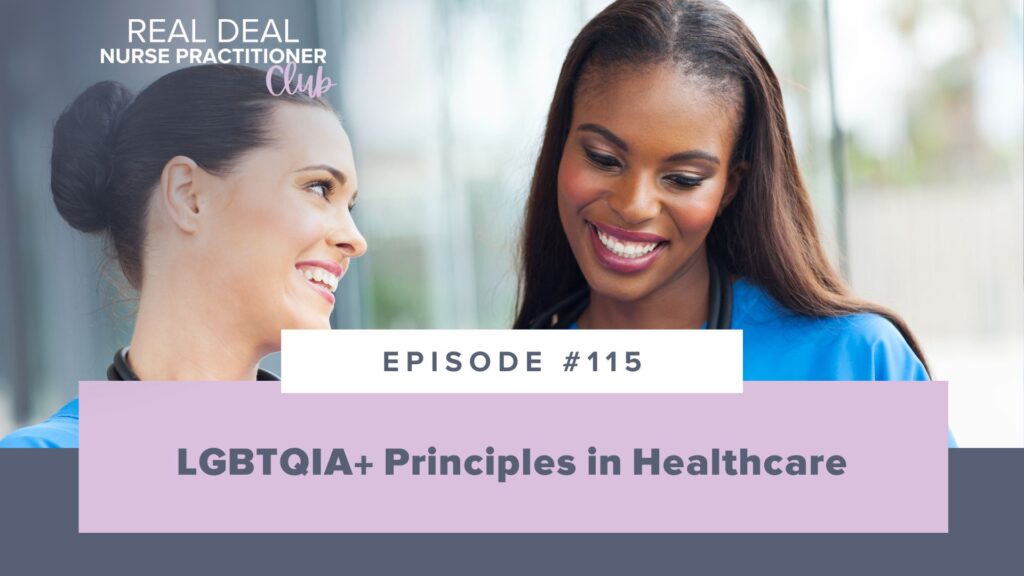Ep #39: Practice Questions [NP STUDENT]
- by
- Oct 27, 2021
- Podcasts
![SMNP Blog - Ep #39: Practice Questions [NP STUDENT]](https://blog.npreviews.com/wp-content/uploads/2023/04/BASFNP039_YouTube.jpg)
This week, we’re talking about one piece of your board preparation process that you cannot afford to overlook: practice questions.
The hard truth is that every single student who has failed their previous attempts ran out of time to do practice questions, or they simply didn’t do enough. But the good news is that if you’re tuning in, you likely still have plenty of time to take my tips today and apply them before your big day.
Listen in as I share my take on why practice questions need to be a key element in your board preparation. I’m giving you my answers on the most common questions I get about practice questions, and how you can use them to do more than just memorize material to ensure your exam success.
I have communities available for both students and new nurse practitioners. In these communities, we work to uplift one another and grow this profession together every single day. If this kind of support is what you need, I invite you to join! Click here if you’re a student, and click here if you’re a new NP.
What You Will Discover:
- How practice questions can impact your exam success.
- Why I feel practice questions need to be a key element in your studying.
- How practice questions are so much more than just about memorizing knowledge.
- 2 frequently asked questions that I receive about practice questions.
Featured on the Show:
- If you’re looking for extra support, I have communities available for both students and new nurse practitioners. Click here if you’re a student, and click here if you’re a new NP!
Full Episode Transcript:
Welcome to Becoming a Stress-Free Nurse Practitioner, a show for new NPs and students that want to pass their board exam the first time and make that transition from RN to NP as seamless as possible. I’m your host Sarah Michelle. Now, let’s dive into today’s episode.
Hello there my friends. Today we’re going to be talking about a piece of your board preparation process that you cannot afford to overlook, practice questions. I know lots of people have opinions on this topic, but I’m here to tell you my hard truth today, so my feelings on the topic. And that truth is that almost every single student that comes to me after failing and doing tons of other reviews is a student who ran out of time for practice questions or only did a few.
The good news about this hard truth though, is that if you’re listening to this podcast episode it’s likely you haven’t tested quite yet. And so you really have plenty of time to take some of the details from this particular episode and put them into practice before your big exam day.
So don’t stress, don’t fret, just come into this episode with an open mind and hopefully when we tie this one up, you’re going to be able to see why practice questions can definitely impact your exam success and why I personally feel they are so incredibly important. They should truly be a key element in your studying and your board preparation process.
And so first up on our list on why practice questions are so important is the most obvious one of all. Which is it allows for you to see how you are not only retaining but also ingraining and applying that clinical content. You cannot simply just memorize your way into passing this exam. It’s not that simple. I wish it was, but that’s okay.
What we instead need to do is we need to ensure that you can do more with the material than memorize. And through application on practice questions we are going to be able to see just that. Practice questions give you insight into whether that material you’ve been studying is actually sticking in your brain like you hope it is.
Then you can see, “Okay, do I always miss the cardiac questions? Or do I always miss questions on a certain disease process like lupus?” Okay, if so then you need to switch up your studying routine and do a deeper dive on whatever that topic is.
You would much rather miss those cardiac questions ahead of time and give yourself a second chance than on your actual exam day where there is no going back or having redos once you hit submit. The last thing you want on exam day is to get flustered over a question you could have easily gotten right.
And so past the obvious here, a big, overlooked portion of doing lots of practice questions is it allows you to practice your exam day anxiety game plan. This one’s huge, guys. A lot of students think they have a solid anxiety plan in place, but how can you be sure unless you practice out that plan ahead of time?
I like for students to do at least 50 questions at a time when you’re testing out those anxiety skills. Don’t look at the answers as you go and treat it like a true little mini practice test. Once you’re done, look at those questions you missed a bit closer. Did you miss a lot of questions in a row?
Now look even closer, did you miss a really tough question and then several easy questions right behind it? If so, we really need to tweak and amp up that anxiety game plan before your exam day. And some ways to do this can be as simple as taking a break after any of those really tough questions or utilizing test taking strategies when you genuinely just don’t know the answer to something.
Which brings me to another super important point, doing lots of practice questions prior to your exam day allows you to actually test out those test taking strategies we talk about in the courses. Those strategies are those different little tools, like if two answers are opposites it’s likely one of those answers is correct. Or if there’s an answer choice to do a further assessment it’s also likely to be correct.
And while these are not fool proof, they will give you the ability to get as close as you can to choosing the right answer about a topic you’re feeling really unsure of. Or maybe it’s one of those zebra diagnosis that we’ve talked about before and it’s something you haven’t heard of before, so you really do have to take a genuine guess. And so let’s definitely apply these strategies to try to get us in the best spot possible to pick the actual correct answer.
And so for those of you out there doing practice questions, try to be really cognizant of those extra little tools and see how many questions you’re able to get correct just by using test taking strategies. By showing yourself that they work you will want to continue practicing them and then also use them on your exam day. Because at that point they will be a habit and a routine, you won’t even have to think about it anymore.
Another great part about doing lots of practice questions is that you are likely to see a similar or even identical question on your exam if you do enough. There are truly only so many ways to ask a question, so the more you can expose yourself to questions the better that chance is.
You’ll also be surprised at how much you retain from getting a practice wrong when you actually pause and take the time to read through that rationale. Then when you see something similar to it on your exam you are going to remember the correct information even better.
I get this exact feedback from students in my live study group program all the time. Whenever they miss a question when they’re called on in the live program, if they then see it on their exam later, they remember that conversation, they remember that rationale, and then they’re able to pull it all together to get it right on their big day.
Now one of the best things about practice questions too is that they give you a tangible score to hold onto as you’re preparing for your exam. It can be so difficult for you guys to be able to decipher whether you’re ready to take that exam, but your score on practice questions can serve as a wonderful clue.
Remember, your exam wants to ensure that you are going to be a safe and competent new nurse practitioner. They don’t expect you to know it all, and instead they deem safety as about that around 70% mark. Therefore, if you’re scoring in the 50s on a practice question bank then it’s very likely you need some more time to keep preparing and keep doing more practice questions.
Please hear that again, if you’re scoring in the 50s on a practice question bank do not take that test quite yet. You definitely want to beef up those scores a little bit more before you go into exam day. So if you’re scoring closer to 75 to 80% or higher, that can really serve as a great clue to know that you’re likely close to being ready to take that exam.
We’ve talked about your list of tangibles before in other podcasts and that’s where you create that list of items that shows you why you are ready to take this exam. And so your scores on practice questions are a wonderful addition to that list whenever you really just need that little mini confidence boost.
Another key thing about practice questions that students commonly overlook is doing a full length practice test before you take the real deal exam. This serves a multitude of purposes, the biggest of which is that you get to practice your anxiety management strategies. But you also get to practice the mental fatigue and strain of taking an exam that long. But if you practice that skill ahead of time, you are going to be ahead of the game.
For example, if you do a full length test and notice that after about question 80 or so that you really struggled to get questions correct, that should be a great hint to you that you are trying too hard to push through and you need to take a break on your exam day around that point.
A lot of students who have issues focusing will do the exam in 25 question stints. So this is where you answer 25 questions, take a mental break to kind of reboot for a minute or two, and then start back again. Really, just enough time to give your brain a rest so you can get back on track and focused.
In addition, doing full length practice tests gives you an idea of your exam speed as well. Being aware if you’re running too slow or too fast allows you to kind of correct that before your exam day. Because it makes me so sad when I get emails from students saying they simply ran out of time because what that tells me is that they were definitely getting lost in the details of the questions and were getting very flustered along the way.
You really want to work any and all kinks out like that before the big day. But you can’t work those out if you don’t know what they are ahead of time. And so we really have to have the awareness there to be able to make the correction, and that’s why we’re going to practice ahead of time.
So now that we know why doing practice questions is going to be vital to your success, I also want to add in two frequently asked questions that I receive about practice questions.
The first of which is how many practice questions should you complete before testing? I would say at the bare minimum I would like students to do one thousand questions before taking their test. But in my opinion, the more the better.
If you do the bare minimum but you’re not scoring where you’d like to be, so we’re not in that 75 to 80% range, I would hold off on testing until those scores bump up. It is totally okay to reboot and reset a question app that you’ve already completed and try it again with a fresh brain to see if you’ve now ingrained that content a little bit better with more studying and more practice.
So you could even do 2,000 questions if you had a 1,000 question bank that you completed and then just reset to just do it all over again. I did a lot more than 1,000 questions before my own exam and I could not believe just how many questions were similar on my actual exam. I felt so prepared on my exam day because I felt I had seen so many of them before, even if they weren’t exactly the same.
The second question I get asked is what sources should I use? My answer to this is not a specific question bank necessarily, but instead I want you to try find an easier source of questions and a harder source of questions.
The easier source of questions is so that you can build yourself up and you build that confidence up before you test. Let every question that you get right be a little mini confidence booster that you’ve got this, and you can absolutely do this.
The harder source of questions is so that you can really practice those anxiety management skills before walking into your exam. There will always be tough questions on your exam but they’re not going to be the majority because remember, as we said earlier your exam just wants to ensure that you are going to be a safe and competent new nurse practitioner.
You’re not expected to know it all, and you’re instead expected to show that you are competent, and you’re practice safely. Having both styles of practice questions is critical because you don’t want to be destroyed confidence wise by those harder questions, but you don’t want to only do easier questions and then panic when you get a tough one on your exam and then suddenly feel unprepared for that anxiety.
And so to tie this episode up, this is my gentle nudge to you to please, please, please incorporate practice questions into your study calendar and your board preparation routine. It can be as simple as doing 20 to 30 questions a day after you finish up your studying.
I want each and every one of you out there to pass this exam and become real deal nurse practitioners. And I have truly consistently found that students who do practice questions have a much easier time finding their way to exam success. They feel more prepared, they have that tangible score to hold onto, and they know how to utilize all of those anxiety management techniques from the courses because they’ve practiced them all ahead of time.
And so to those of you out there testing soon, if you’re not doing practice questions yet, today is the day to start. I can’t wait to hear all about or see your success within our Facebook community here soon. And that’s it for this week guys.
As an extra bonus, friends, if you’re looking for support no matter what phase of your nurse practitioner journey that you’re currently in I have communities available for both students and new nurse practitioners. In these communities, we work to uplift one another and grow this profession together every single day. Links to join will be included for you in the show notes.
Thanks for listening to Becoming a Stress-Free Nurse Practitioner. If you want more information about the different types of support we offer to students and new NPs, visit https://www.npreviews.com/resources. See you next week.
Enjoy the Show?
- Don’t miss an episode: follow the podcast on Spotify, Apple Podcasts, Stitcher, or RSS.
- Leave a review in Apple Podcasts.
Search the Blog
Join our Facebook Group!
Get FREE support and encouragement from thousands of FNP/AGPCNP students and our NP Support team.
Learn More3 Study Hacks to Conquer Your NP Exam!
Download these tips that have helped thousands of students pass their NP board exams.
Download NowInstitutional Partnerships
Are you a faculty member and would like to bring Sarah Michelle’s resources to your school? Email us at nursinggroups@blueprintprep.com for special institutional pricing or click on the link below to learn more.
Learn MoreGroup Discounts
Are you a student and have 10 or more classmates interested in purchasing Sarah Michelle’s courses? Email us at nursinggroups@blueprintprep.com for special pricing.




